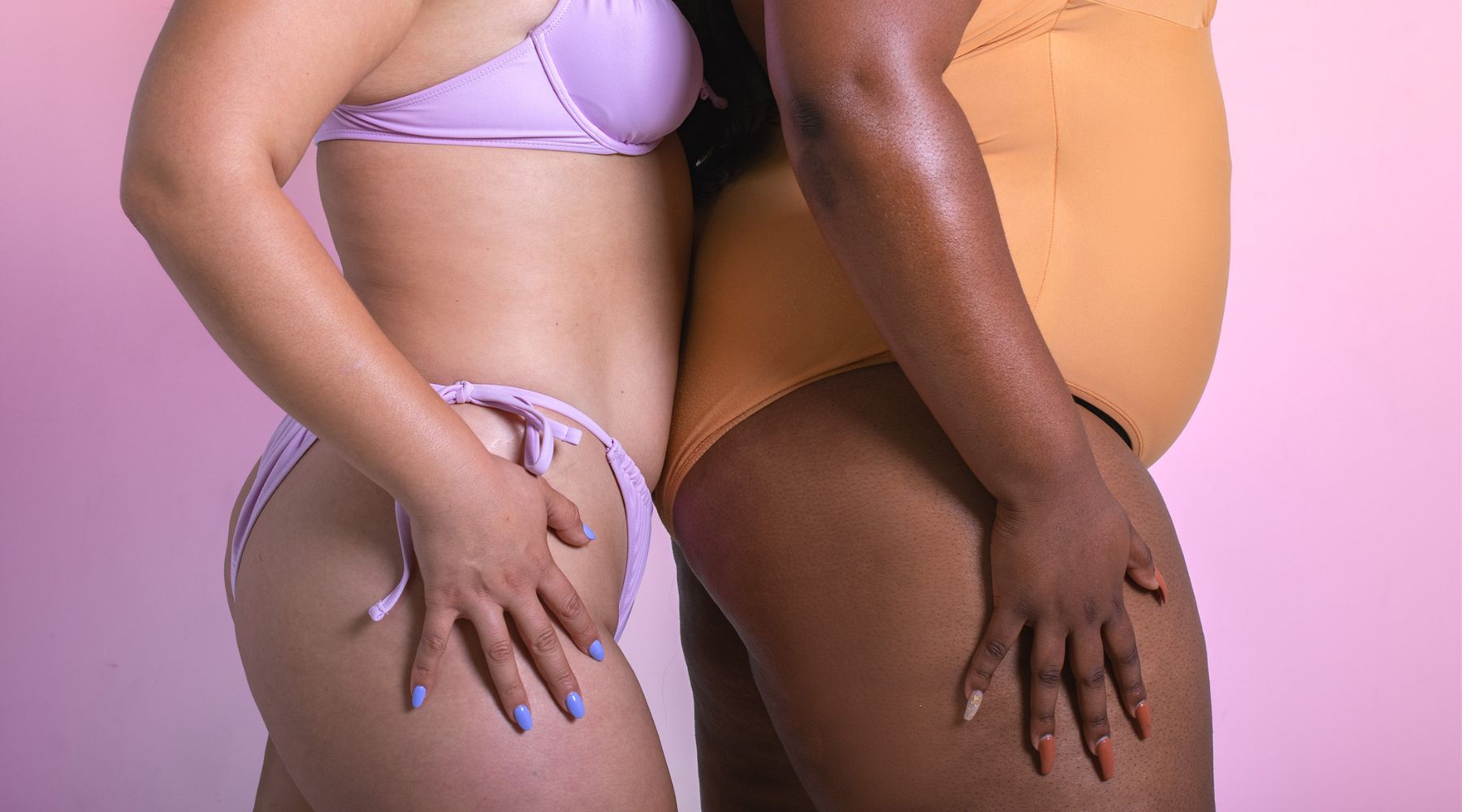One of the most amazing benefits we have today has come through the many advancements in cosmetic surgery, also sometimes called plastic surgery. If you are unhappy with some aspect of your body or facial features, more than likely there’s a cosmetic procedure or surgery that can transform this feature to suit your desires. Historically, these procedures were reserved for celebrities and the affluent, but these days, the opportunity for change is more accessible to everyday individuals. This uptick in popularity may be due to more widely spread awareness of these procedures through social media and the internet, along with the improvements in technique and safety enhancements that have evolved over the past few decades.
If you’re considering cosmetic surgery, you should be aware that, depending on the procedure you desire, there may be certain qualifications that you have to meet before you are determined eligible. Your safety, your ability to heal, and the expected results are some of the reasons these qualifications are in place. The most often used qualification is your BMI, or body mass index, which is a numerical value that is calculated based on your height and weight. If your BMI is over 30, it can indicate that you are overweight or obese, and the risks of a surgical procedure are elevated vs. those who fall within a healthy weight range. Using the BMI scale is not a perfect way to measure your health however, it is a universally accepted practice for determining eligibility for most surgeries, including those done for cosmetic reasons.
One of the primary concerns with cosmetic surgery in individuals with a high BMI is the increased risk of surgical complications, both during the surgery and during the healing process. Today we are going to look at some of the factors, including BMI, that can affect an individual’s candidacy for cosmetic surgery and how plastic surgeons work with high-BMI patients.
What Are Some Common Elements That Determine Eligibility For Cosmetic Surgery?
Similar to other types of surgery, there are some basic requirements you must meet in order to qualify for cosmetic surgery. These requirements may vary depending on the specific procedure and the surgeon you have chosen, but some of the most common elements that are taken into consideration include:
- Your Physical Health
- There are risks and the possibility of experiencing complications that come with any type of surgery, including the risks associated with the use of general anesthesia. Your safety is the most important concern, so it is crucial that you are in good health and free from certain medical conditions such as obesity, heart disease, unmanaged diabetes, etc. If the surgeon feels that the risks involved are too great, it may disqualify you from having an elective cosmetic procedure.
- Expectations That Are Realistic
- You should have a good understanding of the complications that may occur as well as the limitations of the procedure, so you will know what to expect. Cosmetic surgeries can work wonders, but they have their limitations, so a clear understanding of what can and can’t be accomplished by the procedure is necessary.
- Emotional Readiness
- Most people are pleased with the results of their cosmetic changes, but if you are about to undergo significant aesthetic changes, you should be prepared emotionally, have a stable mental health status, and be ready to embrace these changes.
- Age Requirements
- Most plastic surgeons require their patients to be at least 18 years old to have a breast augmentation or liposuction, and some other procedures may have even higher age requirements. If minors are seeking surgical cosmetic alterations, it may require the consent of their parents.
- Lifestyle Considerations
- Certain lifestyle factors may also be taken into consideration. For example, you may be required to maintain a stable, healthy weight for a certain period of time before having procedures like body contouring or liposuction. If you smoke or are a big drinker, these will also be considered as they can affect the healing process and results of the surgery.
Looking at this list of requirements, you might ask yourself,” What if I am overweight or have a high BMI, and I want to get a Brazilian butt lift? You may also wonder if there are any plastic surgeons who work with high BMI patients.
Will A High BMI Prevent Me From Having Cosmetic Surgery?
Historical data has shown that people with a high BMI have increased risks during surgery and do not get the results they expected from their cosmetic procedures. Complications with wound healing, infections, and anesthesia, along with other medical concerns, have been reported in patients with higher BMIs. Also, certain aesthetic procedures will not yield the results desired or be as effective when performed on a person with a high BMI. Too much or not enough skin elasticity or excess fat deposits can prevent you from obtaining the results you are looking for from some types of cosmetic surgery.
Higher BMI patients need to work closely with their plastic surgeons to choose the procedure that is most appropriate for their health status and their aesthetic goals. Some cosmetic surgeries may be more suited for high BMI patients, such as body contouring procedures like a tummy tuck or body lift. These are usually performed after these individuals have lost a significant amount of weight and have been successful in maintaining a stable weight. Surgeries that require extensive incisions or longer operating times should be carefully evaluated, as they can increase the risks for high BMI patients.
When evaluating your eligibility for cosmetic surgery, surgeons will normally consider a number of factors aside from your BMI. They will normally consider your medical history, personal circumstances, and your overall health.
What If I Want To Have A BBL But I Have A High BMI?
Many people are not sure if a BBL is considered surgery or a procedure, and the answer really depends on the circumstances. Liposuction is considered a surgical procedure and is a large part of the BBL process, but it does not always require general anesthesia. If you are looking for a high BMI BBL, it may be possible, depending on your situation, and your surgeon may want you to work on a few things before performing your BBL to ensure you get the results you desire.
It’s important for you to have an open and honest conversation with your cosmetic surgeon and talk about your specific circumstances to receive personalized feedback pertaining to your health and the results you can expect. Your surgeon will be able to determine if Brazilian butt lift surgery is suitable for you after a comprehensive medical assessment. Many surgeons work with high BMI patients by creating a treatment plan tailored for them that helps them achieve a healthier BMI before having their cosmetic surgery. The best way to know whether your high BMI will affect the decision of your surgeon regarding a BBL is to set up a time to speak with them in detail about your specific circumstances.
Are There Options For Patients Who Can Not Safely Have Plastic Surgery?
The advancements in cosmetic techniques have delivered both surgical and non-surgical options for aesthetic enhancements to suit the needs of a variety of patients. If you are looking for high BMI plastic surgery but do not currently qualify, there may be other options for enhancements that can be done while you work on your plan for surgery. Some of the more popular non-surgical options include:
- Botox Injections
- Botox is a neurotoxin that is injected into the skin to temporarily reduce the appearance of fine lines and wrinkles by relaxing the underlying muscles. It is often used to treat frown lines, lines in the forehead, and crow’s feet.
- Dermal Fillers
- Dermal fillers are gels of different consistencies made of hyaluronic acid, a substance that is naturally produced by your body. They are used to restore and smooth out wrinkles, lines, and hollow areas on your face. They can be used to enhance your lips, cheeks, jawline, and other areas of the face.
- Chemical Peels
- A chemical peel is a topical solution that is brushed onto your skin and causes dead skin cells to exfoliate and slough off to reveal healthier, fresh skin underneath. Chemical peels can improve the texture and tone of your skin, treat acne scars, and discorations, and reduce fine lines and wrinkles.
- Microdermabrasion
- A microdermabrasion procedure like Diamond Glow is a non-invasive exfoliation procedure that uses tiny crystals or a diamond dust wand to gently remove the top layer of dead skin cells. It does not involve the use of chemicals like some other exfoliating treatments and helps to improve the texture and tone of your skin, minimize the size of your pores, and lessen the visibility of wrinkles and lines.
- Microneedling with Radiofrequency
- Morpheus8 is a non-surgical cosmetic procedure that combines microneedling with radiofrequency energy to refresh your skin and improve its texture. It is a minimally invasive treatment and can be used on your face, neck, and body to correct many different skin concerns, including wrinkles, fine lines, visible scars, and skin that has begun to sag.
- Laser Treatments
- Laser skin treatments use focused beams of targeted light to correct different skin issues, such as correcting pigmentation, acne scars, and broken capillaries (spider veins). They can improve the texture and tightness of the skin and reduce the appearance of wrinkles and scars while also stimulating collagen production.
- Non-Surgical Fat Reduction Procedures
- Procedures that help get rid of unwanted fat, like Evoke, and Evolve use different non-invasive technologies such as ultrasound or radiofrequency to pinpoint and remove unwanted fat cells without surgery. These convenient and quick procedures can help to reduce unwanted pockets of fat from the thighs, midsection, arms, and more.
- Non-Surgical Body Contouring
- Physiq and Evolve Tone are both non-invasive body contouring treatments that use special technologies to stimulate muscle contractions in targeted areas of the body. These high-intensity focused electromagnetic treatments cause your muscles to contract and grow stronger, similar to when you work out. They can strengthen, sculpt, and tone abdominal muscles, gluteal muscles, and more without stepping foot in the gym.
Choose an Experienced Surgeon
Whether you desire subtle enhancements or drastic changes, there are many cosmetic and plastic surgeons who work with high BMI patients. It is critical to choose a qualified, board-certified professional to perform your cosmetic surgery to ensure not only your safety but also a favorable outcome.
Higher BMI patients often require special care, techniques, and expertise, so it’s important to choose a surgeon who has a good reputation and experience performing plastic surgery on patients with higher BMIs. A cosmetic surgeon who has expertise in the risks and potential complications of surgery associated with high BMI patients will provide the best care and results for this special group of patients.
Contact IBI Plastic Surgery & Med Spa
If you are a high-BMI patient who desires cosmetic surgery, your first call should be to IBI Plastic Surgery & Med Spa. Dr. Angelina Postoev is a triple board-certified cosmetic surgeon with extensive experience working with high BMI patients.
She will work with you to create a plan of care that will help you safely achieve your aesthetic goals. Dr. Angelina and her team of caring and highly qualified professionals will provide you with the highest quality of care and aftercare to ensure you are comfortable and thrilled with your results. Set up your consultation today and learn more about how the amazing team at IBI Plastic Surgery & Med Spa can help you reach your aesthetic goals.







